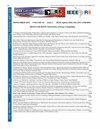FrodoKEM Hardware Implementation for Post-Quantum Cryptography
IF 1.3
4区 工程技术
Q3 COMPUTER SCIENCE, INFORMATION SYSTEMS
引用次数: 0
Abstract
FrodoKEM, a key encapsulation mechanism (KEM) based on the learning with errors (LWE) problem, would be included for standardization by the International Organization for Standardization (ISO) and recommended for PQC migration by the BSI (German Federal Office for Information Security) and the ANSSI (French Cybersecurity Agency). It is closely related to the challenging time-computational problem inherent to algebraically unstructured lattices. However, hardware implementations of this scheme are required to verify its effectiveness in real-world applications. To the best of our knowledge, this is the first hardware implementation of FrodoKEM using High-Level Synthesis (HLS), which meets all requirements of the version submitted for standardization to ISO. The proposed design started with the profiling of the reference C software implementation using Valgrind software tools, to identify the functions that are the most time-consuming. The advantages of the proposed implementation include a 34% improvement in the speed metric of the Key Generation module in comparison with the reference software implementation. The results show that the key generation, encapsulation, and decapsulation use 26%, 39%, and 32%, respectively, of the total area utilization on the Artix-7.后量子加密的FrodoKEM硬件实现
FrodoKEM是一种基于错误学习(LWE)问题的关键封装机制(KEM),将被国际标准化组织(ISO)纳入标准化,并被BSI(德国联邦信息安全办公室)和ANSSI(法国网络安全机构)推荐用于PQC迁移。它与代数非结构格固有的具有挑战性的时间计算问题密切相关。然而,该方案需要硬件实现来验证其在实际应用中的有效性。据我们所知,这是第一个使用高级合成(HLS)的FrodoKEM硬件实现,它满足提交给ISO标准化的版本的所有要求。建议的设计从使用Valgrind软件工具对参考C软件实现进行分析开始,以确定最耗时的功能。与参考软件实现相比,提出的实现的优点包括密钥生成模块的速度指标提高了34%。结果表明,密钥生成、封装和解封装分别占用了Artix-7上总面积的26%、39%和32%。
本文章由计算机程序翻译,如有差异,请以英文原文为准。
求助全文
约1分钟内获得全文
求助全文
来源期刊

IEEE Latin America Transactions
COMPUTER SCIENCE, INFORMATION SYSTEMS-ENGINEERING, ELECTRICAL & ELECTRONIC
CiteScore
3.50
自引率
7.70%
发文量
192
审稿时长
3-8 weeks
期刊介绍:
IEEE Latin America Transactions (IEEE LATAM) is an interdisciplinary journal focused on the dissemination of original and quality research papers / review articles in Spanish and Portuguese of emerging topics in three main areas: Computing, Electric Energy and Electronics. Some of the sub-areas of the journal are, but not limited to: Automatic control, communications, instrumentation, artificial intelligence, power and industrial electronics, fault diagnosis and detection, transportation electrification, internet of things, electrical machines, circuits and systems, biomedicine and biomedical / haptic applications, secure communications, robotics, sensors and actuators, computer networks, smart grids, among others.
 求助内容:
求助内容: 应助结果提醒方式:
应助结果提醒方式:


